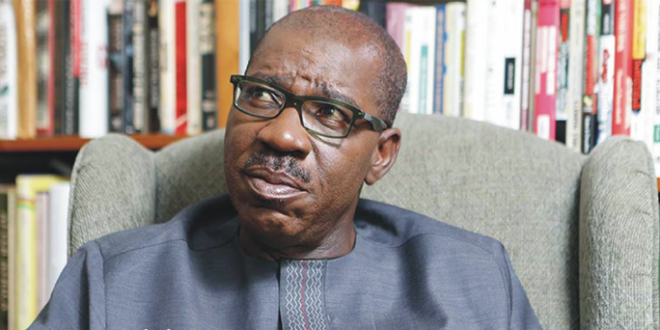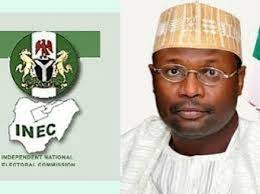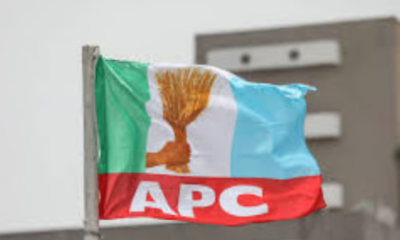Politics
Edo 2016: Relics of extra-legal powers
Published
9 years agoon
By
Olu Emmanuel
By SUNDAY ODIBASHI
The Independent National Electoral Commission (INEC), for the first time successfully conducted a conclusive election in handling the Edo State Governorship Election. However, the mutual distrust from certain political leaders that heralded the election, spilled over to the conclusion of the process. The election which was postponed from Saturday September 10, 2016, eventually held on Wednesday, September 28, 2106.
On prima facie assessment, as monitored from Lagos, the election appeared conducted in accordance with basic the standards. However, reports of Collation Officers (COs) drawn entirely from the Federal University, Oye, Ekiti State, at the Edo State INEC Secretariat, showed clearly certain flaws of the INEC officers at the polling units either due to incompetence or inadequate training. The most perturbing is the unilateral decision of Collation Officers to cancel results of polling units without approval of the Returning Officer on reasons that the judiciary has clarified in the various cases from the 2015 elections from the Petition Tribunals to the Appeal Courts and the Supreme Court.
The issues, however, may not condemn the INEC outright but provides study cases for internal reform or adjustments; as well as review of the Electoral Act by the National Assembly.
In the Edo governorship election, total registered voters was indicated to be1,900,223; accredited voters 622,039; showing that only 32.7 per cent participated in the election.
The statistics given by the INEC while announcing the result showed that total votes cast was 613,244; valid votes 582,299, rejected votes 30,945.
The two leading political parties clearly battled for supremacy in the election contested by 19 political parties.
The APC, however, polled 319,483 votes to defeat the PDP which had 253,173 votes. The difference or winning margin is 66,310 votes.
Accordingly, INEC declared Godwin Obaseki of the APC winner of the election by the Returning Officer, Professor Kayode Soremekun, Vice Chancellor of the Federal University, Oye, Ekiti State.
To the consternation of several stakeholders and observers, the Collation Officers canceled results of several polling units in 17 of the 18 local governments in the Edo State. Reasons given were not remarkably different from one officer to the other, providing quality variables to test the hypothesis that the result of the Edo Governorship election was predetermined, as the PDP alleged. This is an unprecedented notoriety in Nigerian elections.
ALSO SEE: Protests rock Edo over governorship election results
Some party agents questioned the power of Collation Officers to cancel result of polling units when the INEC authorities claim they don’t have the power to cancel elections except the court. At each instance of protest, some other agent were directing the complainants to go to court.
One of the Collation officers disclosed that he cancelled results in some polling units for reasons that the card readers malfunctioned, unavailable on time at another unit. He explained that the community affected in Egor local government protested they were disenfranchised on two occasions in the past, and insisted on participating in that election, agitating for use of manual accreditation process.
Some other Collation Officers cited over voting for cancellation of results in some units. They explained that votes cast exceeded accredited voters. The irony with this reason is that accreditation and voting were said to have taken place almost simultaneously. Were the INEC officials incompetent to have issued voting papers without cross checking their records on the register and without electronic accreditation?
At certain centres, Presiding Officers were said to have out rightly adopted manual accreditation, leading to cancellation of results.
At some other units, Collation Officers reported cases of ballot snatching, violence and threat to the lives of electoral officers.
Meanwhile, INEC was able to weather the challenges and pressures to deliver on the Edo election, however, in perfect. Virtually, all the crises, whether INEC officials, from top to bottom, were influenced to rig the election, emanated from political and state actors involved in the power struggle.
The result from Oredo Local Government Area was the most controversial. Indeed,
PDP demanded total cancellation of the Oredo result, accusing the Collation Officer of being recruited over night to tinker the result and announced a fraudulent result. The PDP agent at the Collation Centre contested that PDP won Oredo election and people were already celebrating on the streets. He insisted that social media results were at variance with the official result announced by the Collation Officer, thus, putting his reputation into question, though the Returning Officer called him to order, essentially, since he is a legal practitioner.
While the results were being declared, several PDP youths mobilized and were protesting at the INEC Secretariat in Benin City but the security operatives reinforced from other units for urgent intervention.
The Returning Officer declared one hour break at 11.00am, and the processed resumed at 12.00 noon; and another one hour break at 2.00pm and resumed 3.00pm.
Generally, the Edo governorship election was totally conservative. In the last governorship election, about the same figure of a little over 600,000 participated in voting.
Studies have shown that in conservative elections, the incumbent candidate or party usually have more advantages of winning; more so, when there is low voters turnout.
Meanwhile, the PDP and Young Democratic Party (YDP) rejected the result and declined endorsing the document in protest.
Ize-Iyamu had protested that INEC announced fabricated results. “The results were predetermined and written, the result did not show the large turnout of voters,” he declared. The PDP candidate was protesting that there was a deliberate cut in figures to show to the world that there was low turnout as the statistics indicates.
The PDP, thereafter, went into consultation for the next course of action while the APC celebrates.
You may like


INEC: 3.5 Million Nigerians Register Online, Low Turnout in South-East Worries Stakeholders


Tension in PDP over defection


INEC says it’s yet to make final decision on Warri Federal Constituency delineation


PDP inaugurates PDI Board of Governors Nov 7
PDP celebrates rapid agricultural development in Delta


INEC Refutes APC claims of BVAS smuggling in Edo Governorship Election
Trending

 Health5 days ago
Health5 days agoDeclassified CIA memo explored concealing mind-control drugs in vaccines

 Entertainment6 days ago
Entertainment6 days agoSimi addresses resurfaced 2012 tweets amid online backlash

 Crime5 days ago
Crime5 days agoSenior police officers faces retirement after Disu’s appointment as acting IGP

 Education7 days ago
Education7 days agoPeter Obi urges JAMB to address registration challenges ahead of exams

 Health7 days ago
Health7 days agoNAFDAC issues alert on suspected revalidated SMA Gold infant formula

 Comments and Issues6 days ago
Comments and Issues6 days ago20 Critical Fixes to Save Nigeria’s Democracy from Electoral Fraud

 Football6 days ago
Football6 days agoMartínez ruled out of Everton clash with calf injury

 Latest6 days ago
Latest6 days agoICPC yet to respond to El-Rufai’s bail request as arraignment date looms

